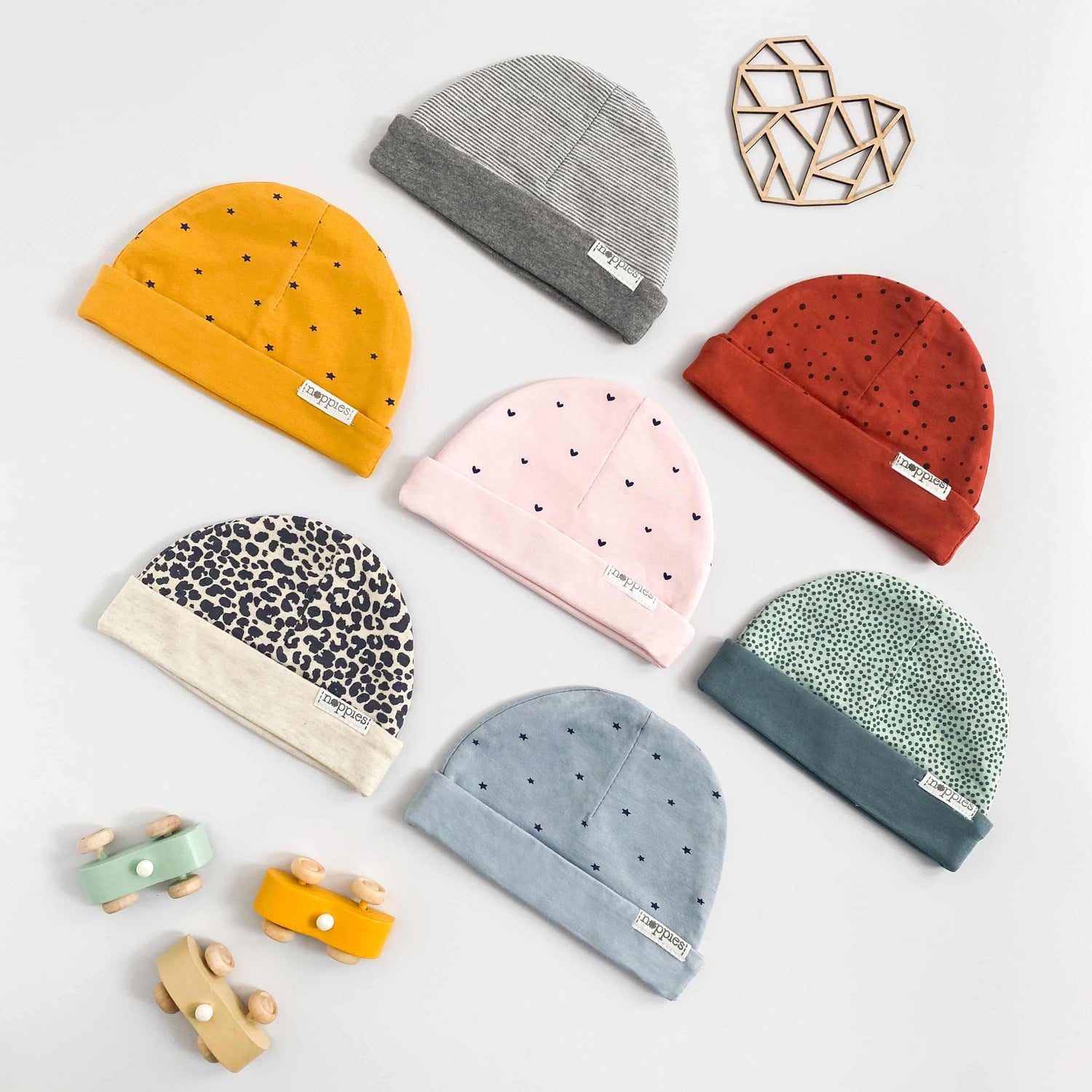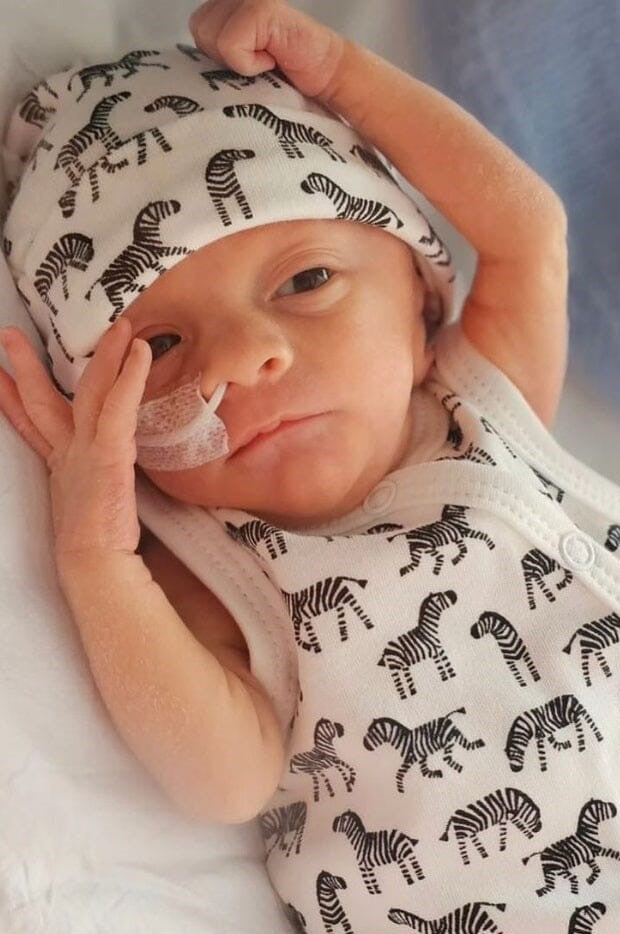Weaning a premature baby
What is weaning?
Weaning is the process of moving your baby from a milk-only diet, to a diet of, eventually, only food. It will seem like you have been breastfeeding or sterilising bottles forever, but sooner or later it will be time to move your little mouse onto a more solid diet. A lot of mums find the weaning process very positive - especially when they have a premature baby. It can feel like your tiny miracle is having even more of a boost from their food, and helps them grow big and strong.
There isn’t much science-based evidence surrounding weaning your premature baby, and the signs that your baby is ready for the next stage of their journey may come at different times, compared to a “normal” term baby.
Why is it important to wean your premature baby?
Nutrition is normally always at the forefront of a premature baby’s care. You’ll have spent time in the NICU listening to medics and nurses talk about how they can optimise your premature baby’s milk or fluids, so that you little mouse could grow. Weaning is no different - sooner or later, your baby won’t receive all of the nutrition that they need from milk, and will need more variety in their diet to ensure they can develop normally. Eating solid foods can help your baby’s mouth and muscles develop, encouraging speech later in life.
When should I wean my premature baby?
It is difficult to pick a certain age for your baby to be weaned. As their parents, you are best placed to know when your baby is ready to move onto the next step in their journey. Your little mouse should have good head control and be sitting up - either by themselves, or in an assisted seat or high-chair. Baby needs to be supported, so that they don’t slump to one side. And never leave baby unattended while you are feeding them solids. Signs that baby is ready to transition to solids include;
- Reaching for people’s food
- Watching others eat
- facial expressions
- putting more things in their mouths
- if they are settled into a feeding and sleeping routine.
Its important to remember that if baby is taking more milk, that doesn’t necessarily mean that they are ready for weaning - it could be a sign of a growth spurt. It’s important to observe all the signs and then make the change.
Choose a time that baby isn’t too tired or too hungry, remember that weaning can be a messy process and it should be a fun one!
What should I be feeding my premature baby?
If you can, try and feed baby home-cooked food, this way you can control the nutrients they are getting. If you have to feed them shop-bought pouches or jars, check the ingredients before you give them to your little mouse. You should feed baby lots of protein-rich food, but no added sugar or salt.
You don’t have to prepare a whole meal for baby, its easiest to start with one feed, and find out what baby likes and doesn’t like - it can take up to 8 trials of the same food for baby to make their mind up, so if they don’t like something initially, keep trying.
Savoury foods tend to be more nutritious than sweet food, so try and feed baby these first so they fill up on goodness, before offering pudding.
Start off with plain, pureéd foods - such as carrots and or mashed avocado. Once baby has developed a taste for these softer foods, you can try and encourage food with more lumps.
Cheese, cream, oil and butter (unsalted) are all good to add to foods - babies don’t need bland food, and its a good idea to try and encourage them to taste a range of flavours.
Alongside their food and milk, your premature baby may have been prescribed vitamin drops - these will more-than-likely have been given to baby on the NICU and be reviewed by the media team at NICU baby clinics.
If you would like baby to follow a vegetarian or vegan diet, you should seek advice from a healthcare professional, to ensure your premature baby is receiving all of the nutrients they need to grow big and strong. Avoid low-fat options, as these are “empty calories” and won’t help baby to grow.
Food allergies
There is no evidence that premature babies are more likely to develop food allergies. If there is a family history of allergies, parents are advised not to remove these food types from baby’s diet. If you or your partner do suffer from allergies, and baby is suffering from eczema, it is worth checking with your doctor if baby should be having peanut butter early on in the weaning journey, or if you should wait until later.
Drinks to offer while weaning
Before 6 months baby can have cool boiled water - after 6 months you don’t need to boil and cool the water anymore. It’s important o keep baby hydrated - especially in the summer - but not to fill them up on water too much, as this will mean they won’t be as hungry, and won’t get as many nutrients from food. If you are going to use any baby juice, make sure it is very diluted. Its not advised to add baby rice to milk bottles anymore, so try to avoid this.
Top tips for weaning your premature baby
- Try a Tidy Tot tray - this will catch any food baby tries to throw off the edge of the highchair and make cleaning just that bit easier (co.uk)
- If its summertime, try feeding them outside - if its winter, you can feed them inside, in the warm, with no clothes on (saves on washing!)
- Don’t add any salt to baby’s meals, and use fruit to sweeten things up if you really have to
- Once baby is weaned, a fork is often easier for them to control than a spoon
- Make sure you have enough time to dedicate to the meal - its important that baby can make eye contact with you so they can understand the process of eating
- It should be fun, its all about texture and taste, so let baby explore to their little hearts content





